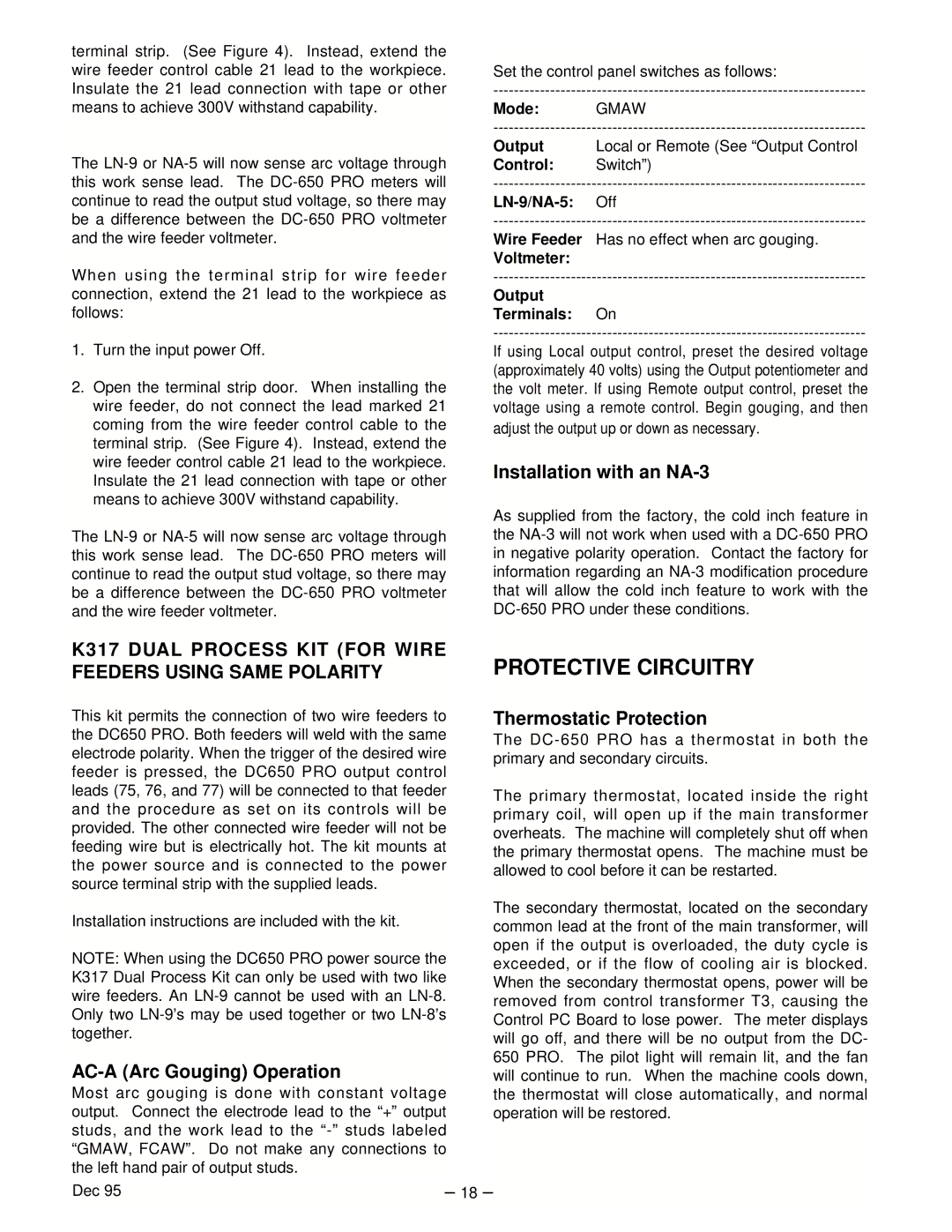
terminal strip. (See Figure 4). Instead, extend the wire feeder control cable 21 lead to the workpiece. Insulate the 21 lead connection with tape or other means to achieve 300V withstand capability.
The
When using the terminal strip for wire feeder connection, extend the 21 lead to the workpiece as follows:
1.Turn the input power Off.
2.Open the terminal strip door. When installing the wire feeder, do not connect the lead marked 21 coming from the wire feeder control cable to the terminal strip. (See Figure 4). Instead, extend the wire feeder control cable 21 lead to the workpiece. Insulate the 21 lead connection with tape or other means to achieve 300V withstand capability.
The
K317 DUAL PROCESS KIT (FOR WIRE FEEDERS USING SAME POLARITY
This kit permits the connection of two wire feeders to the DC650 PRO. Both feeders will weld with the same electrode polarity. When the trigger of the desired wire feeder is pressed, the DC650 PRO output control leads (75, 76, and 77) will be connected to that feeder and the procedure as set on its controls will be provided. The other connected wire feeder will not be feeding wire but is electrically hot. The kit mounts at the power source and is connected to the power source terminal strip with the supplied leads.
Installation instructions are included with the kit.
NOTE: When using the DC650 PRO power source the K317 Dual Process Kit can only be used with two like wire feeders. An
AC-A (Arc Gouging) Operation
Most arc gouging is done with constant voltage output. Connect the electrode lead to the “+” output studs, and the work lead to the
Set the control panel switches as follows:
Mode: GMAW
Output Local or Remote (See “Output Control
Control: Switch”)
Wire Feeder Has no effect when arc gouging.
Voltmeter:
Output
Terminals: On
If using Local output control, preset the desired voltage (approximately 40 volts) using the Output potentiometer and the volt meter. If using Remote output control, preset the voltage using a remote control. Begin gouging, and then adjust the output up or down as necessary.
Installation with an NA-3
As supplied from the factory, the cold inch feature in the
PROTECTIVE CIRCUITRY
Thermostatic Protection
The
The primary thermostat, located inside the right primary coil, will open up if the main transformer overheats. The machine will completely shut off when the primary thermostat opens. The machine must be allowed to cool before it can be restarted.
The secondary thermostat, located on the secondary common lead at the front of the main transformer, will open if the output is overloaded, the duty cycle is exceeded, or if the flow of cooling air is blocked. When the secondary thermostat opens, power will be removed from control transformer T3, causing the Control PC Board to lose power. The meter displays will go off, and there will be no output from the DC- 650 PRO. The pilot light will remain lit, and the fan will continue to run. When the machine cools down, the thermostat will close automatically, and normal operation will be restored.
Dec 95 | – 18 – |
